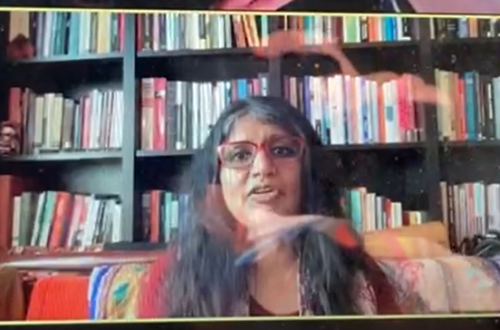Here:
Several times in the life of this site, we’ve revised the comments policy so as to limit offensive speech. We’re about to do so again—and this time move the goal line. Whereas in the past we have published comments on the basis of whether they abide by certain ground rules, our new policy will involve editorial discretion about the content of comments. Yes that is a subjective test, but we have no other choice.
Obviously this decision is a result of the recent flap over anti-Semitic commentsposted from the Free Gaza Movement Twitter account. That incident has prompted a lot of soul searching inside the movement for Palestinian human rights, because it showed that a significant part of the community wants to talk about Israeli policy in the context of Jewish history and Jewish identity, and do so in a highly critical manner. Clearly a lot of people, including many in our community, want to have these conversations and regard them as necessary to resolving the Middle East conflict. We don’t. We are tired of serving as a platform for this discussion, including in the comment section, and don’t see the conversation as a productive one. From here on out, the Mondoweiss comment section will no longer serve as a forum to pillory Jewish culture and religion as the driving factors in Israeli and US policy.
We are making this change because this discussion makes for a toxic, often racist, discourse, and scares off others who would otherwise be drawn to the issues this site concerns itself with. Obviously some of our own posts have broached issues of Jewish identity; and we will continue to publish critiques of Jewish identity construction and analyses of the Jewish political establishment—what Tony Judt called the most powerful Jewish community since the Roman Empire. But we’re going to sharply circumscribe commenters’ freedom to address these issues as a special or unique Jewish problem, or to post arguments that any form of collective Jewish community-building is negative. We believe in free speech, and expect that these commenters will find a place on line to have their conversation. We just don’t want it here; it interferes too much with our work.
In addition, will be redoubling our effort to adhere to our current comments policy in a stricter manner – no personal attacks, no trolling. We want the comment section to be a constructive addition to the discussion of the site and these practices only undercut it.
What’s allowed? What’s not? We’re going to have a tight screen on comments, almost as if they’re letters to the editor, deciding which are good enough to be posted. We’ll lose some casual comments inevitably and we understand this change will lead to a decline of the conversational nature of the comment section. We regard this as a loss, but we don’t see a way around it.
We greatly value the comments section on this site. We’ve all learned a lot from the commenters here, who are better informed than some of the writers. Indeed several of the commenters have become contributors, Annie Robbins wouldn’t be an assistant here were it not for the comment section, and we do not want to lose the insight, knowledge and passion that many of the commenters here hold for the issues we cover. We believe this change will lead to highlighting the best part of our comment section, while reducing the volume that often obscures the best it has to offer.
We are proud of this site because we think it has a vital and historic role to play in reforming American policy. Clearly the rich comment section is not incidental to that role, but a major part of the life of the site. Please help us as we institute this policy by trying to be more thoughtful in your remarks.
Cor.


